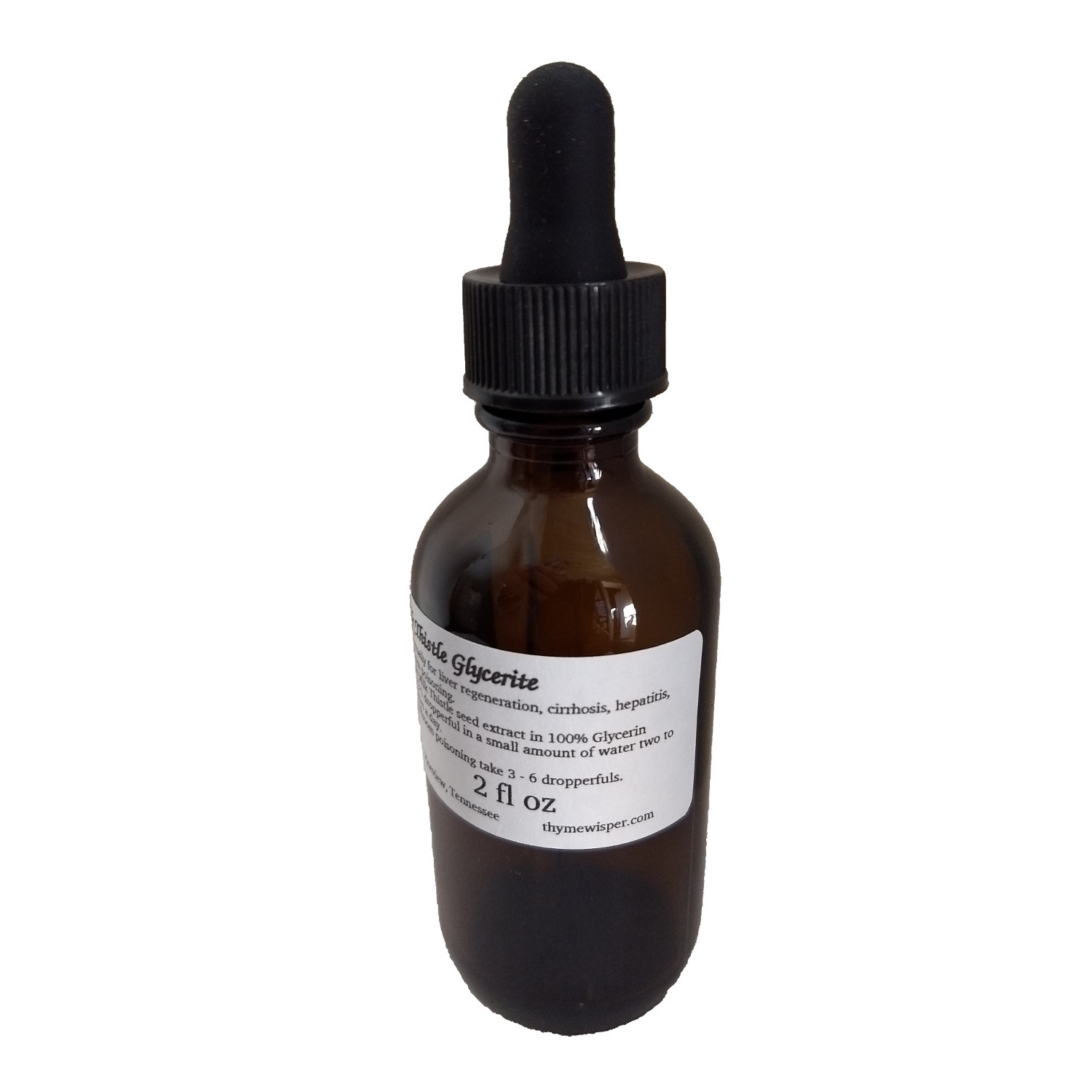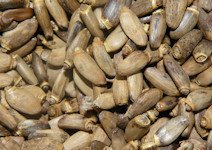What is a Glycerite? A question every parent should be asking.

A glycerite is a tincture that uses glycerin instead of alcohol from a spirit (vodka or grain alcohol). Glycerin (also spelled glycerine) is a substance similar to sugar and is present in all natural fats. Yes, that means it tastes sweet. And like alcohol it is a solvent, and thus it is used to make tinctures. Glycerin is a clear syrupy liquid that has no odor. It is a by-product of soap making. Vegetable glycerin produced from coconut oil is widely used by pharmacies and for making alcohol free herbal tinctures called glycerites.
Why make a glycerite?
The main reason to use a glycerite is to avoid the use of alcohol, especially for children and for pets. And due to its natural sweetness, it is easier for children and pets to accept compared to most alcohol based tinctures. In the case of a Milk Thistle tincture that is used for healing and regenerating the liver, if the reason for liver damage is due to overuse of alcohol (i.e., Cirrhosis of the liver due to alcoholism), a remedy that contains alcohol does not make sense. In this case a Milk Thistle glycerite should be given.
One disadvantage of using glycerin is that it is not as good a solvent as alcohol, so glycerites are not as potent as tinctures with alcohol. However for children and pets, the dosage of a tincture with alcohol would usually be reduced anyway. So the dosage for a glycerite is, in a matter of speaking, naturally reduced.
The major disadvantage is that glycerin is not as good a preservative as alcohol. While tinctures made from alcohol can be stored for decades, glycerites have an expiration date that is based on the expiration date of the glycerin. If the glycerin has been on the manufacturer's or wholesaler's shelf for a significant period of time, the herbalist may end up making glycerites that have an expiration date of 6 months to a year out, which is usually what I have received in the past. Having had to throw out large containers of glycerin because they had "expired", I bought small amounts often instead. However, the last order of glycerin I received in 2017 actually had a date of April 2020! I wish I had known that. I would have bought a gallon or two!
How is a glycerite made?
A glycerite is made using exactly the same steps as detailed in my book Making Tinctures: Beyond The Folk Method that were used for making a tincture with alcohol. The formula for the specific herb is the same whether using a spirit (vodka or pure grain alcohol) or glycerin. The equation used in the w/v method for a specific herbal glycerite is the same one used for making a tincture with alcohol, except substitute glycerin for the spirit. The menstruum is made up of glycerin and water, and the amount is calculated using the strength ratio in the formula and the amount of herb in grams. For a glycerite, the spirit used is glycerin at a “proof” of 200. So 100% alcohol in the formula using glycerin is a menstruum of pure glycerin. Distilled water is added for any formula with a “percentage of alcohol” less than 100%, and the amount of distilled water is calculated just as as it was done in the w/v method for a tincture with alcohol.
Bottom-line, just substitute glycerin for the spirit and consider the proof to be equal to 200. Everything else is done the same as it was done for making a tincture with alcohol, with one exception.

The only w/v formula (of the formulas that I use) that does change from the tincture with alcohol is the formula for the Milk Thistle glycerite. Since what we want to pull out of the Milk Thistle is only alcohol soluble, we use the full strength of the glycerin as a solvent and do not add any distilled water. Thus instead of 95% glycerin to match the 95% alcohol in the formula for the Milk Thistle tincture with alcohol, the Milk Thistle glycerite is 100% glycerin. (Only reason my formula for Milk Thistle tincture has 95% alcohol is because I am unable to get 100% (200 proof) alcohol. In my experience the tincture is still effective, if I let it "soak" for 5 months or longer. I am fortunate that I live in a state that allows the sale of the 190 proof!)
One notable difference between preparing an alcohol based tincture versus a glycerite will be the effort it takes to shake the mixture once the herb and glycerin are combined. Since glycerin is syrupy, it is sticky and "absorbs" the herb more than alcohol does and thus takes some effort to mix and blend while shaking it. It also is more difficult to strain by hand. When it is time to strain and bottle glycerites, I don't expect to do many quickly.
Hi! I am a robot. I just upvoted you! I found similar content that readers might be interested in:
https://thymewisper.com/thymes-tinctures/what-is-a-glycerite/